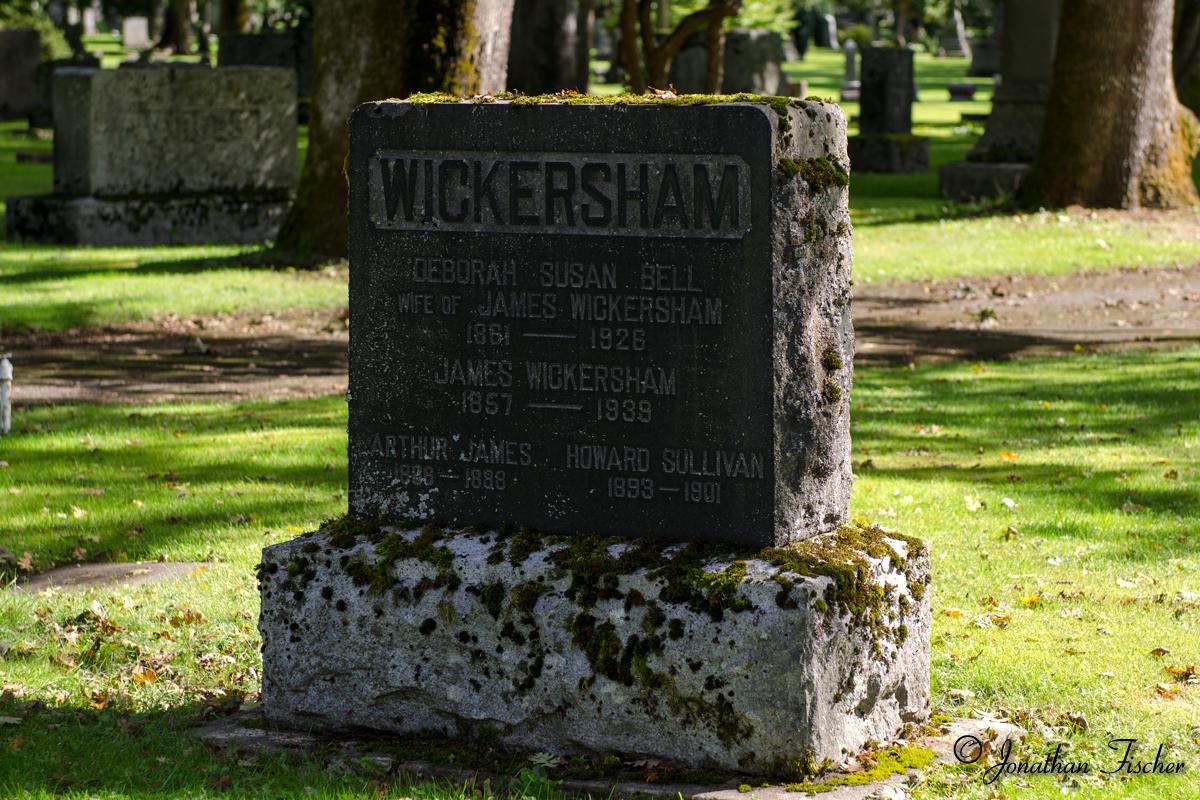
My daughter is a freshman at Pacific Lutheran University located
in southern suburb of Tacoma, Washington. On my visit to Tacoma of September
26, 2013 I brought my camera along, as I was searching for a bit of Alaska Railroad
history.
The Tacoma Municipal Cemetery is located along South Tacoma Way. It's a downtrodden
neighborhood of auto body shops, ethnic restaurants, pay day loans, and medical
marijuana dispensaries. The cemetery is a green oasis in a literal concrete
jungle.
The staff was very helpful when I explained that I was looking for a historical
figure buried in their cemetery. Wickersham was buried here in 1939.
While Frederick Mears built the Alaska railroad, in many respects Wickersham
fathered the railroad. He had received his appointment to the bench in Alaska
in return for his support of a Republican congressman in Washington State. While
originally from Patoka, Illinois, he had been practicing law in Tacoma for several
years. While in Tacoma he successfully sued Charles Wright, the city's main
benefactor, on behalf of the City of Tacoma. On a down note he narrowly avoided
conviction of a crime in a sex scandal. He got off when his female accuser admitted
that she had been hired by some of Wickersham's adversaries. This isolated indiscretion
would dog him the rest of his life. He was an honest and capable judge in Alaska
and decided a mining case in favor of Stephen Birch who then sold the claim
to the Guggenheims. Birch tried to hire Wickersham on several occasions, but
things never worked out. Alaska would be vastly different today had Wickersham
gone to work for the Guggenheims.
He was among the first group of Americans to try an assent of McKinley. He was
also interested in documenting native life and had an extensive collection of
books and artifacts from the territory.
After serving as a judge in Alaska, he was Alaska's first congressional
delegate. His landmark five hour long speech on the floor of Congress on January
14, 1914 was the tipping point in favor of construction of a federal railroad
in Alaska.
When asked how he felt the next day Wickersham stated: “like a woman who
has had a baby – very proud but damned sore!” A modified version
of the act introduced by Wickersham was signed into law less than sixty days
later.
For more information on this legendary Alaskan read: “Frontier Politics:
Alaska's James Wickersham” by Evangeline Atwood. Binford and Mort, Publisher
1957.
James Wichersham was indeed a legendary figure in Alaskan history.

© 2013 Jonathan Fischer